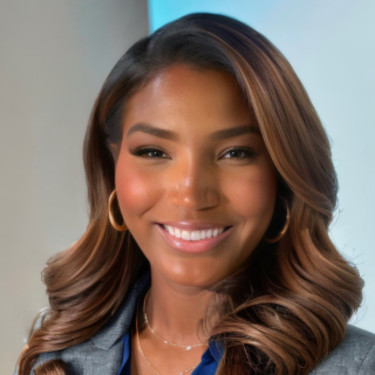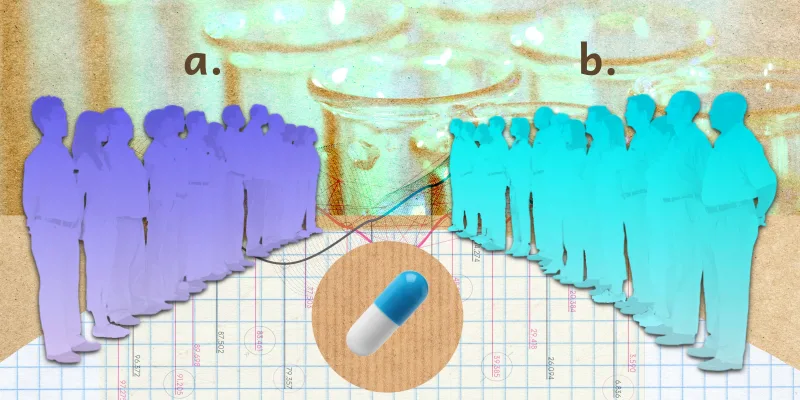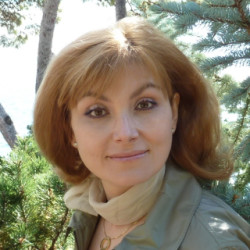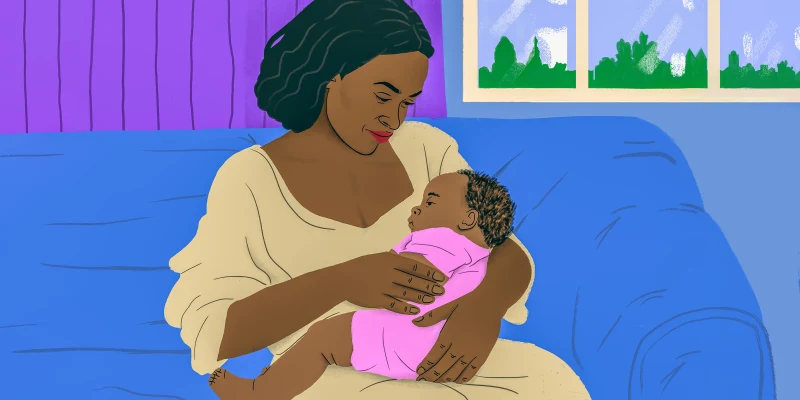It was just another drive to work — sun barely up, coffee in the cup holder beside me, brain already ticking through my patient list — when I saw the title of a podcast that gave me pause: “If You’re Feeling Behind in Life, Listen to This.” Listening to Mel Robbins has become a bit of a ritual for me. Each morning, I scroll through different episodes to see what resonates. But that day in April, the title felt too on the nose to ignore.
I was 29 years old, newly board certified, and finally starting my first attending job as a pediatrician. I should have felt like I’d made it. I was finally on the other side of a decade-long grind through medical training. Instead, I could only think: Why do I still feel like I’m falling behind?
Classic Mel Robbins — coming for my soul at 7 a.m.
I had done everything “right.” No gap years. Straight from high school to college, to medical school, to residency. I followed the path with precision. And still, I sometimes felt behind — behind on relationships, behind on home ownership, behind on starting a family, behind on feeling rooted in one place. Houston to Durham, back to Houston, then Boston, and now Arizona. Medical training didn’t just shape my identity — it scattered it across the country.
That nagging feeling of being behind? It turns out it has a name I hadn’t heard until that morning: the social clock. It’s the culturally ingrained idea that we should hit certain life milestones — graduating, marrying, buying a home, having children — by specific ages. It’s an invisible timeline against which we all seem to measure ourselves.
But if you chose medicine, you already know that the clock wasn’t built for us. The expectations don’t line up. Have kids before residency. No, wait — during residency. Or maybe after fellowship? There’s no perfect moment. And while my friends outside of medicine were traveling, buying homes, and building lives after college, I was working 80 hours a week, spending holidays in the hospital, and celebrating victories like warming up a Trader Joe’s meal or catching a nap after a 24-hour shift. I missed weddings, holidays, births — even my own birthdays — because that’s what the job demanded.
And now, even at the finish line of training, I sometimes catch myself wondering: Am I late to the rest of my life?
But here’s what that podcast — and the space that comes after training — has helped me see: as clinicians, we’re not behind. We’re just on a different timeline. One built on service, not speed. One rooted in depth and delayed gratification. It’s tempting to compare ourselves to peers who took different routes — who bought homes sooner, took gap years to travel, explored different passions, or started families years ago. But those paths weren’t wrong, and neither is mine nor yours. They just unfolded differently.
The hardest part is realizing how much medicine asks of you, not just the hours or the years, but the space it quietly takes up in your identity. It can crowd out room for self-discovery: Who are you outside of the hospital? What do you actually like to do when you’re not on call? For years, I didn’t know. But I’m learning now. I’ve started carving out time for the things that bring me joy and curiosity – Pilates, moving my body in ways that feel good, learning a new language, even building Legos just for fun. I’ve been booking trips I used to only dream about and exploring creative outlets I never had time for before. These aren’t sweeping transformations — they’re small ways of reclaiming pieces of myself. And I’m learning it’s not too late.
There is time. Time to travel. To fall in love. Time to take up pottery, powerlifting, or gardening. Time to build a version of adulthood that’s not a checklist, but a mosaic— one made at your own pace.
It helps to release the pressure to “catch up.” The milestones we often feel behind on don’t need to be chased just for the sake of matching someone else’s pace. Success used to mean test scores and Match Day letters. Now, it might mean a full night of sleep, a slow Sunday, or finally decorating your space in a way that feels like home.
And yes, you can be a confident, capable doctor and still be a total beginner at dating, finances, or simply figuring out what makes you happy. That doesn’t mean you’re lost or behind. It just means you’ve been focused on something else for a long time. We need to normalize this path. We need to speak more honestly about what it feels like to be a young doctor who is still building a life beyond the badge and white coat. Because the social clock was never made for us, and measuring ourselves against it only steals joy from a journey that deserves to be honored.
So if you’re a new doctor — or still in training — and you feel like you’re falling behind, hear this: You’re not.
You’re just building something different. Something slower. Something deeper. Something real.
And that’s more than enough.
How has medical training affected your path in life, and what are some ways you've gotten back in touch with yourself? Share in the comments!
Dr. Tasia Isbell is a pediatrician at Boston Children's Hospital and Boston Medical Center. She enjoys cycling, traveling, and exploring the world through cuisine. She tweets at @DrTasiaIsbell. Dr. Isbell was a 2023–2024 Doximity Op-Med Fellow and continues as a 2024-2025 Doximity Op-Med Fellow.
Image by Getty Images






